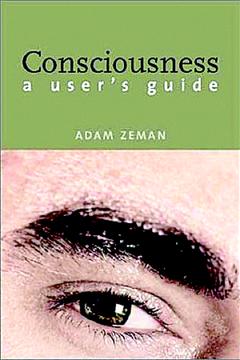Among intellectuals, consciousness has traditionally been relegated to the squishy realm of philosophy. Thinkers considered the issues surrounding how and why we are conscious to be too complex and mysterious to survive the rigors of scientific study.
Over the last 10 years or so, though, this changed. Using extraordinary new technologies, neurologists and physiologists have learned much about the way our nervous systems function.
Adam Zeman is a respected neurologist and senior lecturer at the University of Edinburgh. In Consciousness: A User's Guide, he examines in detail our current understanding of the brain and explores a range of nervous disorders that provide clues about the way consciousness works. He then surveys the divergent philosophical and scientific theories that attempt to explain consciousness itself.
The study of consciousness is such a complicated subject, involving so many different disciplines, that Zeman acts mainly as a synthesizer of existing knowledge and theories. His goal is to give the general reader a comprehensive understanding of the field in its current, admittedly primitive state.
Mostly, he does an excellent job. Even if you aren't fluent with all the relevant sciences—and I'm certainly not—Zeman engages in enough hand-holding and repetition to lead the reader through the intellectual minefield. Those who persevere emerge on the other side with minimal injuries and a broad understanding of the field.
At the beginning of the 21st century, the study of consciousness has become one of the most fascinating, and trendy, topics in science and philosophy. The most difficult chapters—for me, anyway—were the ones in the middle. These explain in great detail the physical and chemical structures of the nervous system. They also explore current thinking on various bizarre neurological maladies, such as “blindsight” in which victims don't possess the experience of vision but can nevertheless make a number of visual judgments about items they claim not to see.
Early chapters as well as ones toward the end of the book are more theoretical, and therefore more accessible to non-scientifically trained lay readers.
As it turns out, certain theorists believe that neuroscience will never be able to fully explain consciousness. This is because although science may someday be able to completely chart the chemical and electrical processes that result in consciousness, it might never be able to fully explain the subjective experience of, for example, drinking a cup of coffee.
Zeman himself doesn't seem too concerned by this. He's an old-fashioned reductionist who seems to think that consciousness, although a tricky phenomenon, will eventually be fully explained in traditional scientific terms.
At this early point in the development of the field, it's impossible to say whether or not he's correct. We humans may never know why we are so much greater than the sum of our parts. Only time will tell. In the meantime, consciousness remains a hungry beast, and Zeman's overview of its study gives us plenty of food for thought.









